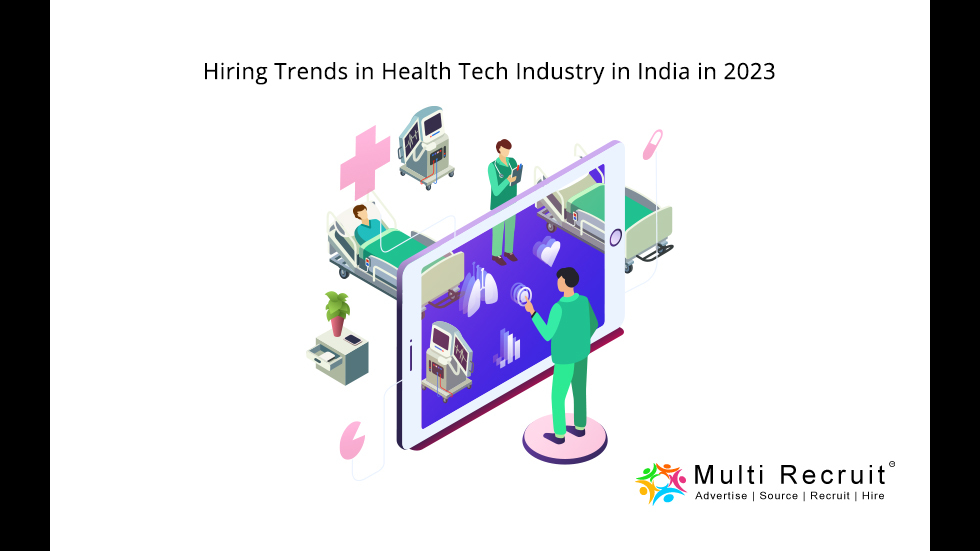The healthcare industry in India is one of the largest and fastest-growing sectors in the country, comprising hospitals, clinics, diagnostic centres, pharmaceutical companies, medical device manufacturers, and health tech startups. India has a diverse healthcare system, with both public and private sectors playing a critical role in providing healthcare services to its population of over 1.3 billion people.
The Indian healthcare industry has witnessed significant growth over the past decade, driven by a growing population, rising income levels, increased healthcare spending, and advancements in technology. The sector has also been impacted by the COVID-19 pandemic, which has highlighted the importance of healthcare infrastructure and the need for digital health solutions.
Despite the growth, the Indian healthcare industry faces several challenges, including limited access to healthcare in rural areas, inadequate infrastructure, and a shortage of healthcare professionals. The Indian government has taken several measures to address these challenges, such as increasing healthcare spending, launching health insurance schemes, and promoting telemedicine.
Overall, the healthcare industry in India offers vast opportunities for growth and innovation, and the sector is expected to continue to expand in the coming years. The COVID-19 pandemic has only accelerated the adoption of health tech solutions and made the industry even more important. With the Indian government’s push towards a more digital economy and the rise of technology startups in the country, the health tech industry is poised for growth.
In this blog, we will discuss the hiring trends in the health tech industry in India in 2023.
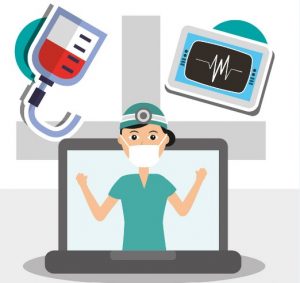
As the adoption of health tech solutions increases in India, so does the demand for skilled health tech professionals. From data scientists to software developers and UX designers, the industry requires a diverse set of skills. With a rise in demand for talent, companies are likely to pay higher salaries and offer better benefits to attract the best talent.
Health tech industry in India is witnessing significant growth, and with this growth comes a surge in demand for skilled professionals in various fields.
Some of the most in-demand health tech jobs in India include:
Data Scientists and Analysts: With the increasing amount of health data generated, there is a high demand for data scientists and analysts who can analyze and derive insights from the data.
AI and Machine Learning Experts: As AI and machine learning technologies are transforming the healthcare industry, there is a growing need for experts who can develop intelligent healthcare solutions.
Software Developers and Engineers: Health tech companies require skilled software developers and engineers who can design and develop software solutions for healthcare providers and patients.
UX Designers: UX designers are needed to design user-friendly and intuitive interfaces for healthcare software and applications.
Telemedicine Experts: The pandemic has accelerated the adoption of telemedicine, and there is a high demand for telemedicine experts who can develop and implement telemedicine solutions.
Medical Device Engineers: Medical device companies require engineers who can design and develop medical devices that meet regulatory requirements and patient needs.
The health tech industry in India offers a wide range of opportunities for skilled professionals across various fields. The above-listed jobs are among the most in-demand and lucrative health tech jobs in India, and professionals with expertise in these areas are likely to be in high demand in the coming years.

The pandemic has accelerated the shift towards remote working, and the health tech industry is no exception. Many health tech companies have realized the benefits of remote working and are likely to offer remote working options to their employees even after the pandemic ends. This will not only help companies attract talent from across the country but also help employees achieve a better work-life balance. The pandemic has highlighted the need for digital health solutions and telemedicine services, which has led to an increase in remote working options.
Some of the trends in remote working options in the healthcare industry in India are:
- Increased use of telemedicine: The pandemic has led to a surge in demand for telemedicine services, which has created more opportunities for remote working. Healthcare professionals can now provide medical consultations and treatments remotely, reducing the need for in-person visits.
- Work-from-home options: Many healthcare companies in India are now offering work-from-home options for their employees. This has enabled healthcare professionals to provide remote support and services to patients while maintaining social distancing protocols.
- Virtual collaboration: With the rise of digital health solutions, healthcare professionals can now collaborate virtually from different locations. Healthcare teams can now work together remotely, sharing information and knowledge, and delivering better patient care.
- Remote monitoring: Remote monitoring devices, such as wearables and remote sensors, are becoming increasingly common in the healthcare industry. This technology allows healthcare professionals to monitor patients remotely, reducing the need for in-person visits.
- Better work-life balance: Remote working options in the healthcare industry in India have enabled healthcare professionals to achieve a better work-life balance. This has led to reduced stress levels, improved mental health, and higher job satisfaction.
Remote working options in the healthcare industry in India have become increasingly popular due to the pandemic and the rise of digital health solutions. The trends in remote working options include increased use of telemedicine, work from home options, virtual collaboration, remote monitoring, and better work-life balance for healthcare professionals. As the healthcare industry continues to evolve, remote working options are likely to become even more prevalent in the future
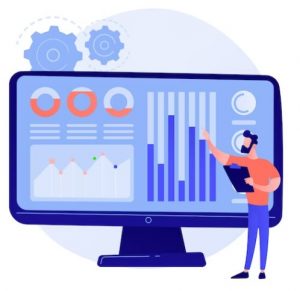
With the increase in the adoption of digital health solutions, the amount of health data generated is also increasing. Health tech companies are likely to focus on data analytics and hire data scientists and analysts to derive insights from the data. This will help companies improve their products and services and make healthcare more personalized.
Data analytics has become increasingly important in the healthcare industry in recent years, particularly in the context of hiring. The healthcare industry generates vast amounts of data, and data analytics can be used to derive insights from this data that can inform hiring decisions.
Here are some of the key reasons why data analytics is important in hiring in the healthcare industry:
Identifying skills gaps: By analysing data on the skills and qualifications of current employees, hiring managers can identify skills gaps and develop targeted training programs to address them.
Predictive modeling: Data analytics can be used to develop predictive models to identify the most qualified candidates for a particular role. This can help hiring managers to make more informed hiring decisions, reducing the risk of a poor hire.
Performance evaluation: Data analytics can be used to evaluate the performance of existing employees and identify areas for improvement. This information can be used to develop training programs and career development plans that help employees to grow and advance within the organization.
Cost savings: Data analytics can help organizations to identify cost savings opportunities by analyzing recruitment and hiring data. For example, by analyzing data on the time-to-hire, organizations can identify ways to streamline the recruitment process and reduce costs associated with hiring.
Diversity and inclusion: Data analytics can be used to identify patterns of bias and discrimination in the hiring process. By analyzing data on candidate demographics and hiring outcomes, organizations can identify areas where bias may be present and develop strategies to address it.
Data analytics is an important tool for hiring managers in the healthcare industry. By using data analytics to inform hiring decisions, organizations can identify skills gaps, predict performance, evaluate employee performance, save costs, and promote diversity and inclusion. With the growing importance of data in the healthcare industry, data analytics is likely to become even more important in hiring in the years to come.
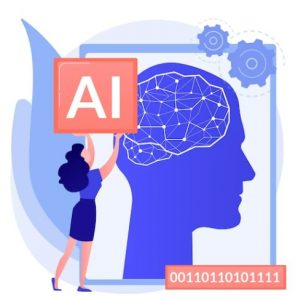
The rise of AI and machine learning in the health tech industry has transformed the way healthcare is delivered and has also impacted hiring practices. AI and machine learning technologies are being used to develop intelligent healthcare solutions that are more accurate, efficient, and personalized. As a result, there has been a surge in demand for skilled professionals with expertise in AI and machine learning.
Here are some of the ways in which AI and machine learning are impacting health tech hiring:
Increased demand for data scientists: AI and machine learning rely heavily on data, and as a result, there has been an increased demand for data scientists who can analyze and derive insights from healthcare data.
Development of intelligent healthcare solutions: AI and machine learning are being used to develop intelligent healthcare solutions that can automate routine tasks, improve diagnosis accuracy, and personalize treatments. As a result, there is a growing need for professionals who can develop and implement these solutions.
Improved patient outcomes: The use of AI and machine learning in healthcare is leading to improved patient outcomes, which is driving demand for professionals with expertise in these areas.
Reduced healthcare costs: AI and machine learning can help healthcare providers to identify cost-saving opportunities by analyzing healthcare data. This has led to increased demand for professionals who can use these technologies to reduce healthcare costs.
Interdisciplinary collaboration: The development of intelligent healthcare solutions requires interdisciplinary collaboration between healthcare professionals, data scientists, software engineers, and machine learning experts. As a result, there is a growing need for professionals who can work across different disciplines and collaborate effectively.
The rise of AI and machine learning in the health tech industry has transformed healthcare delivery and has also impacted hiring practices. The increased demand for data scientists, the development of intelligent healthcare solutions, improved patient outcomes, reduced healthcare costs, and interdisciplinary collaboration are some of the ways in which AI and machine learning are impacting health tech hiring. With the continued growth of AI and machine learning in the healthcare industry, the demand for skilled professionals in these areas is likely to continue to increase.
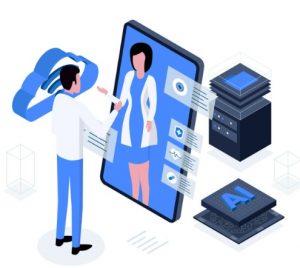
Healthcare and tech professionals are likely to collaborate more closely in 2023. The rise of digital health solutions has made it essential for healthcare professionals to work closely with tech professionals to develop solutions that meet the needs of patients. This collaboration is likely to result in better health outcomes and improved patient care.
In recent years, there has been a significant increase in collaboration between healthcare and tech professionals. This collaboration has been driven by a growing recognition of the potential for technology to transform healthcare and improve patient outcomes.
Here are some of the ways in which healthcare and tech professionals are collaborating:
Development of health tech solutions: Healthcare and tech professionals are collaborating to develop innovative health tech solutions that can improve patient outcomes, streamline workflows, and reduce costs. For example, they may collaborate on the development of electronic health record (EHR) systems, telemedicine platforms, and health monitoring devices.
Big data analytics: Collaboration between healthcare and tech professionals is crucial in leveraging the power of big data analytics. Healthcare professionals bring their domain knowledge of clinical data, while tech professionals provide their expertise in data management, analysis, and visualization. Together, they can analyze large volumes of health data to improve patient outcomes and drive healthcare innovation.
Interdisciplinary research: The collaboration between healthcare and tech professionals has led to interdisciplinary research that has the potential to revolutionize healthcare. For example, biomedical engineers and medical professionals are collaborating to develop new medical devices and technologies that can improve diagnosis and treatment.
Continuous learning: Healthcare and tech professionals are collaborating to facilitate continuous learning and professional development. For example, tech professionals may provide training to healthcare professionals on the use of new health tech solutions, while healthcare professionals may provide feedback to tech professionals on how to improve these solutions.
Improved patient outcomes: Ultimately, the collaboration between healthcare and tech professionals is aimed at improving patient outcomes. By leveraging technology and domain knowledge, they can develop innovative solutions that can help diagnose, treat, and prevent diseases more effectively.
Collaboration between healthcare and tech professionals is critical for the development of innovative health tech solutions that can improve patient outcomes and drive healthcare innovation. Through collaboration, they can leverage each other’s strengths to develop solutions that are more effective, efficient, and user-friendly. The collaboration between healthcare and tech professionals is likely to continue to grow as the potential for technology to transform healthcare becomes increasingly apparent
To conclude, the healthcare industry in India is undergoing a significant transformation, driven by advancements in technology and an increasing focus on patient-centric care. The rise of health tech companies in India has resulted in a surge in demand for skilled professionals who can develop, implement, and maintain innovative health tech solutions. In 2023, we are seeing several hiring trends in the Indian health tech industry, including the increasing demand for AI and machine learning experts, data scientists, and cybersecurity professionals. Additionally, remote working options have become more prevalent, and interdisciplinary collaboration between healthcare and tech professionals has become critical to the development of innovative health tech solutions. As the health tech industry in India continues to grow and evolve, the demand for skilled professionals is likely to continue to increase. It is essential for companies to stay abreast of these hiring trends to attract top talent and remain competitive in this rapidly changing industry.

